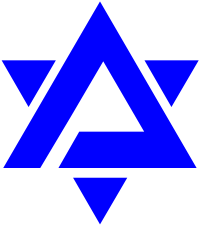1935 Maccabiah Games
The 2nd Maccabiah (Hebrew: המכביה השנייה), aka the Aliyah Olympics, which was held in April 1935, was the second edition of the Maccabiah Games. The games were held despite official opposition by the British Mandatory government. A total of 28 countries were represented by 1,350 athletes.
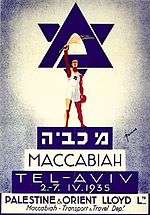 | |
| Host city | Tel Aviv, Palestine |
|---|---|
| Nations participating | 28 |
| Debuting countries | 10 |
| Athletes participating | 1,350 |
| Events | 18 |
| Opening ceremony | April 2 |
| Closing ceremony | April 10 |
| Main venue | Maccabiah Stadium |
| Summer | |
| Winter | |
History
After the success of the 1st Maccabiah in 1933, the Maccabi World Union decided to host a second Maccabiah. In order to not make it look like they were imitating the Olympic Games, the 2nd Maccabiah took place 3 years after the first, in the spring of 1935. Eretz Yisrael enjoyed that year a relative economic boom. Tel Aviv has grown and main streets were paved. The stadium also has grown and added many new viewing locations. The second Maccabiah resulted in the settlement's first swimming pool (50 meters) in Bat Galim, Haifa. The pool was used throughout the games in the swimming competitions (during the 1st Maccabiah, the swimming competitions took place in the sea).
"If two years ago we had doubts about the success of the daring attempt to establish Olympics in Israel, now success is assured."
The second Maccabiah was organized and held in the early years of Nazi rule in Germany and after Hitler came to power in 1933. Maccabi used the games as a way to illegally bring Jews to Eretz Yisrael and to effectively bypass the British White Paper. It was for that reason that the games were nicknamed the Aliyah Olympics. The games faced strong opposition by the British Mandatory government due to concern of mass illegal immigration. One of the most notable examples was the Bulgarian delegation, where all 350 of its members stayed in Palestine; even the entire Maccabi Bulgaria orchestra that came with them and performed at the opening and closing ceremonies stayed. Only their sports equipment and musical instruments were shipped back.[1] Additionally, the majority of the German and Polish team took the opportunity to stay in Palestine.
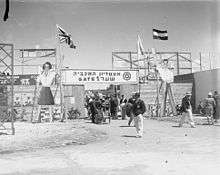
Unlike the first Maccabiah which was planned in just under three months, the second Maccabiah took just over a year, which significantly increased costs. As a result, the Maccabiah organizing committee faced severe budgetary problems. The Maccabi Eretz Yisrael Fund was so poor, quoting "The budget was barely enough for the postage-stamps". As such, it was decided that the Maccabiah be supported financially by the World Maccabi Union - with Maccabi Eretz Yisrael still responsible for the planning of the games.
Maccabi organized a large Maccabiah fund. Special Maccabiah offices were opened for this purpose in London, Alexandria, Berlin, Warsaw, Prague and Tel Aviv. A special office was also opened in South Africa. Tickets for the Maccabiah competitions were sold at various trade centers and across all drugstores in Tel Aviv.
Opening ceremony
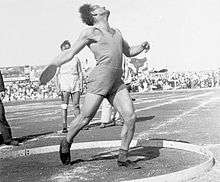
Despite the opposition of the British Mandate Police, a large number of athletes participated in the parade that went through the streets of Tel Aviv. For the 2nd Maccabiah, Lord Melchett served as Honorary President of Maccabi and sponsored the games; "In defiance of the British government's strict limitations on aliyah [seeking permanent residence], many competitors took advantage of their being in the Holy Land and decided to stay."[2]
Among 15 anthems, the one by Yigal Caspi was chosen as the official Maccabiah Anthem; it was sung during the opening and closing ceremonies.
Sports
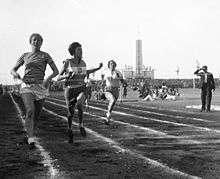
The 2nd Maccabiah introduced many new sports including: judo, cycling, weightlifting, rowing, volleyball and darts. The 2nd Maccabiah was the last time motorcycle racing took place. Handball and Basketball which were played during the 1st Maccabiah did not take place in this one; they were played in the 3rd Maccabiah.
Games that took place:
|
|
|
Games highlights
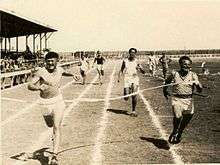
In boxing, Ben Bril, Olympian and eight-time national champion, won a gold medal for the Netherlands. From the American team, Lillian Copeland stood out, winning gold medals in the discus (37.38 meters), javelin (36.92 meters) and shot put (12.32 meters). In tennis, Karol Altschuler won a gold medal for Poland, previously winning Junior Champion of Poland in 1930. In chess, Abram Blass won a gold medal for Poland, followed by David Enoch, Eduard Glass, Heinz Josef Foerder, Yosef Dobkin, Victor Winz, Moshe Czerniak, and Siegmund Beutum.[3]
In the final scoring, Austria placed first with 399 points, followed by Germany on 375.3 points and Eretz Israel placed third on 360.5 points.[4]
Participating communities
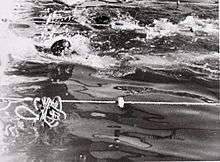
28 Delegations took park in the 3rd Maccabiah. The number in parentheses indicates the size of the delegation.
Debuting countries
10 countries made their Maccabiah debut at these games.
References
- Maccabiah Games
- 'History of the Maccabiah Games', in R. Rabinowitz (ed.), 16th Maccabiah, One People, One Dream, Israel, July 2001. Archival Material from the Pierre Gildesgame Maccabi Sports Museum, and Maccabi World Union, Ramat-Gan, Israel.
- Wolsza, Tadeusz (2007), Arcymistrzowie, mistrzowie, amatorzy. Słownik biograficzny szachistów polskich, tom 5. Wydawnictwo DiG, Warszawa. ISBN 83-7181-495-X
- "Archived copy". Archived from the original on 2011-10-04. Retrieved 2008-12-06.CS1 maint: archived copy as title (link)
.jpg)
